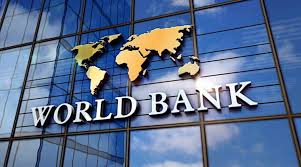Mohammed Shosanya
The Niger coup d’état may increase pressure on the food markets in Nigeria and other West African countries,the World Bank has said
In its latest report,the bank said the Nigerien coup d’état, increases the likelihood that seven million more people in the region will experience severe food insecurity despite the fact that 3.3 million people already experience this during the lean season due to rising commodity and staple food prices.
The bank said this in its September “Food Security Update, which stated, “The coup d’état in Niger might put additional pressure on West African food markets.”
It added that in August, food prices in Niger rose by up to 21% as a result of the economic and financial sanctions the Economic Community of West African States (ECOWAS) and the West African Economic and Monetary Union put on the nation.
“With the government’s limited financial capacity to implement its food assistance program, continued provision of food aid by the World Food Programme remains essential, but access restrictions are hindering delivery of aid,” the World Bank disclosed.
“Moreover, FAO expects that shortages of seeds and feed and high fertiliser costs will affect the next agriculture season, exacerbating food insecurity, which is expected to persist beyond the lean season,” it said.
According to the bank,the number of individuals in Western and Central Africa who require food and nutritional assistance has increased from over 10.7 million in 2019 to almost 29 million in 2021 to more than 40 million in 2022 and 2023.
It said that 42.5 million people in Nigeria and other West African nations faced a food crisis or worse between June and August 2023.
“The main factors affecting food security are civil insecurity and conflict, which have led to forced displacement; climatic shocks; political instability; the consequences of the COVID-19 pandemic; and the war in Ukraine, which have increased the volatility of prices for foodstuffs and other commodities and caused widespread inflation. Current food prices of the main staple and imported food products remain higher than during the same period last year,” the bank added.

















